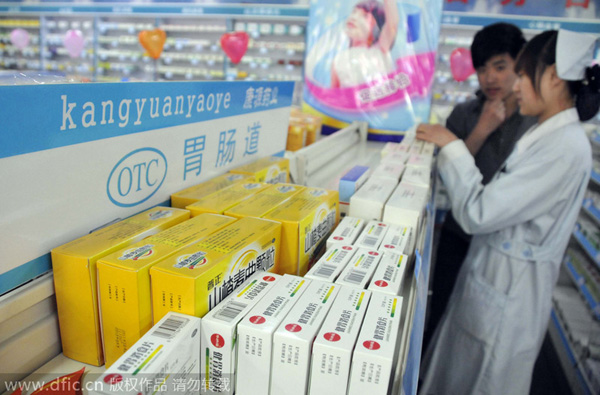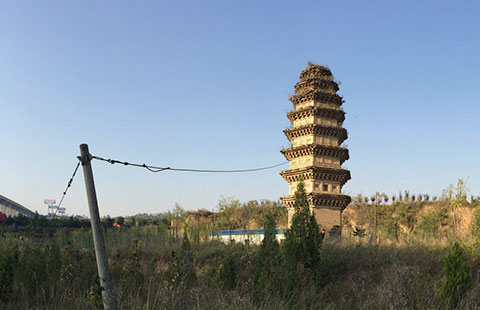Cheaper, fewer medicines
Updated: 2015-10-16 08:01
(China Daily)
|
||||||||
 |
|
Man buys medicine with the help of a pharmacy sales person in Chongqing municipality, Southwest China, July 21, 2014. [Photo/IC] |
The recent enthusiasm over reports that a hypertension patient in Xi'an, capital of Shaanxi province in Northwest China, had his disease "cured" by medicine costing only a few cents, was more than just appreciation for the "conscientious" local doctor who had prescribed it. It was also symptomatic of people's growing discontent at overmedication.
Medical professionals have pointed out that the drug will only temporarily lower the patient's high blood pressure, given that hypertension is a chronic disease that cannot be completely cured and only controlled through continuous medication. But this has failed to stem the praise for the doctor's action.
This is because it is an open secret that in the country's current medical system doctors overprescribe because they can receive kickbacks from the pharmaceutical companies. Such a hidden practice has even bred a long chain of corruption involving the manufacturers, salespersons and doctors. It is not unusual for a patient to have to pay hundreds of yuan on medicine to treat a minor ailment such as cold.
The lack of medical knowledge among patients and the tangled relationship between doctors and Big Pharma have contributed to the overuse of medicines by the hospital. The government has taken a series of measures to cut the interest chain, but overmedication remains a common practice in some hospitals.
Earlier this year, the State Council, China's Cabinet, issued a guideline aimed at improving the system of collective purchases of medicines for public hospitals, urging hospitals to provide training on reasonable medicine usage and an evaluation system for doctors, in a bid to reduce the unreasonable overprescribing of medicines.
Public expectations for cheap medicines sparked by the low-cost medicine the doctor prescribed for hypertension once again show that the authorities should take more measures to push for reform of its current controversial medicinal system.

 Cui: China, US should share global vision
Cui: China, US should share global vision
 Speaking Mandarin attracts Chinese homebuyers in the US
Speaking Mandarin attracts Chinese homebuyers in the US
 Top 10 overseas destinations of National Day holidaymakers
Top 10 overseas destinations of National Day holidaymakers
 Pink landscape in Shanghai invites visitors
Pink landscape in Shanghai invites visitors
 Hornets beats Clippers in a row in NBA Global Games
Hornets beats Clippers in a row in NBA Global Games
 Leaning pagoda hooked by a cable wire
Leaning pagoda hooked by a cable wire
 Autumn's colorful wardrobe
Autumn's colorful wardrobe
 Chinese Navy's training vessel arrives in Pearl Harbor
Chinese Navy's training vessel arrives in Pearl Harbor
Most Viewed
Editor's Picks

|

|

|

|

|

|
Today's Top News
Tu first Chinese to win Nobel Prize in Medicine
Huntsman says Sino-US relationship needs common goals
Xi pledges $2 billion to help developing countries
Young people from US look forward to Xi's state visit: Survey
US to accept more refugees than planned
Li calls on State-owned firms to tap more global markets
Apple's iOS App Store suffers first major attack
Japan enacts new security laws to overturn postwar pacifism
US Weekly

|

|








